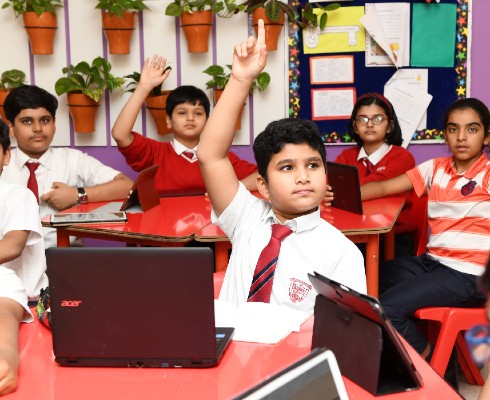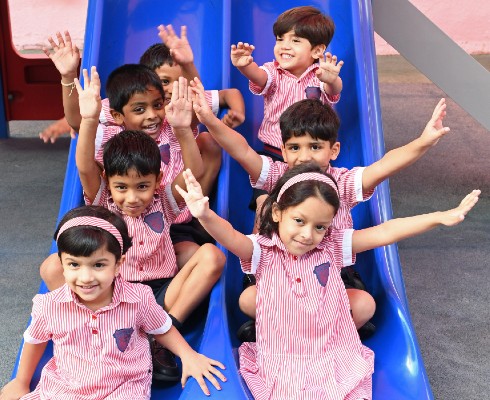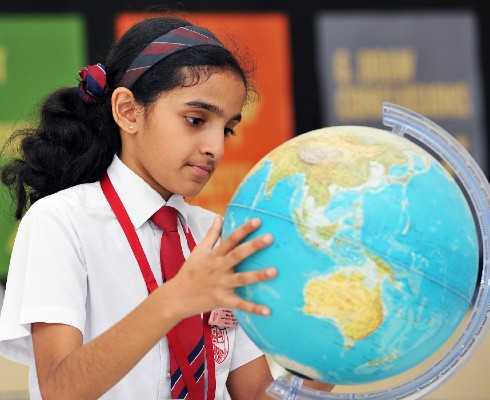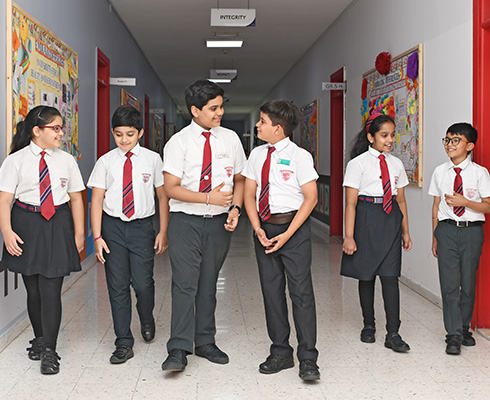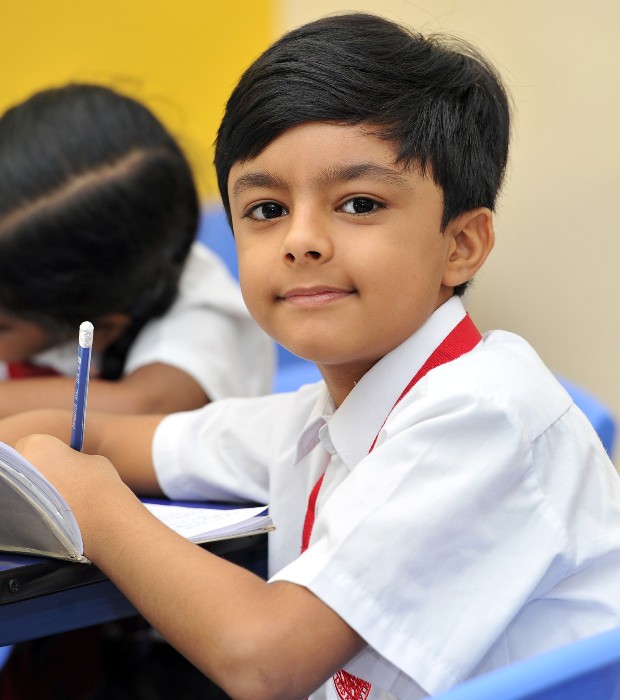
Learning Approaches
In keeping with our school vision ‘Laying foundations for life through the continuous pursuit of excellence’ there has been a paradigm change in the educational approach of the school in the last four years, to equip our students with all the 21st century skills so as to prepare them for the challenges ahead and for life.
E-Learning Approach
Since April 2013, the learning approach in GLS has evolved from the conventional text book learning to a more blended e-learning approach with a judicious mix of hands on exploration and interactive learning through e-resources. Online interactive learning platforms have been implemented as a means of extending learning beyond the physical boundaries of the text book and the classroom.
Multi Sensorial Activity Based Approach
A wide range of hands on, relevant, concrete, first-hand opportunities and multi-sensorial learning experiences are provided for all students to develop their Personal, Social, Emotional, Cultural, Spiritual, Physical, Language, Mathematical, Creative and Critical Thinking Skills in a diverse and intellectually stimulating environment. Being a Primary School, emphasis is laid on a balance of child led and teacher led activities to promote skill based learning. Activities that are free and structured, individual as well as collaborative form the basis of experiential learning at GLS.

Expeditionary Approach
Since the last academic year the Expeditionary Learning approach has been implemented in all core subjects, particularly Arabic and has helped students extend their learning beyond the classrooms by using real life contexts and situations for problem solving and deepening their learning. The expeditionary learning approach has stimulated student curiosity and has helped them think beyond the realms of their classrooms. Teachers use this hands on approach to contextualize learning so that students are engaged in real life experiential learning. The learning from these expeditions is further extended and shared in lessons. This approach has brought in palpable excitement in learning in students, staff and parents. It has also impacted positively student conversational skills in Arabic and English.
Reggio Inspired Approach
Reggio Emilia Approach at GLS – a unique, innovative and inspiring approach to early childhood education. This is a child-led hands on approach, where the role of the teacher is only as a facilitator who observes, probes students’ thinking with provocations, listens to their questions and stories, finds what interests them and provides them with a range of materials and opportunities to explore these interests further. In the Reggio Inspired approach children use many different ways to express their thoughts and creativity in the form of art, music, dance, sculpture, speech, pretend play, etc. using a variety of materials in their environment. This approach believes that children are capable of constructing their own learning, collaborating socially and communicating through their own investigations, with the environment as their third teacher.
Inter-disciplinary Project Based Approach
LEGO and STREAM have been integrated within the GLS Curriculum in 2016. Students are engaged in hands on LEGO and Robotics projects involving a seamless integration of elements of Science, Technology, Research, Engineering, Art and Math, all built into a life-worthy learning story. Students in Grades 1 – 5 build projects using LEGO and EIE – Engineering is Elementary kits, which further develop their critical thinking, creative thinking and problem solving skills.
Forensic Integrated Cross-Disciplinary Learning

Crack the clues, Solve the Case, Set the stage for multisensory learning.
Children from a tender age have colossal curiosity, a thundering thirst for knowledge and an investigative attitude. They already display the inherent traits of a social and scientific researcher as they attempt to make sense of their own personal world. Forensic principles and concepts can be used as a pedagogical tool in the classroom to hone a multitude of skills such as scientific discovery, effective communication, keen observation, critical thinking, fact-based prediction, judicious decision making, co-operative learning and ethical inquiry. The amalgamation of forensics with the curriculum aims to provide a highly contextualized setting for multisensory and extensive learning through the creation and utilization of ‘Mock Crime Scenes’. This integrative education practice is not only a hands-on participatory approach but is also poised to situate languages, mathematics, social studies, science and even liberal arts in a broader cross-disciplinary framework.
A staged crime scene will involve an evidence collection walk-through, allowing the students to sharpen their senses while searching for age-appropriate clues such as fingerprints on a coffee cup, soil embedded in the tread of a shoe, fibres from a torn garment, a forged cheque and sometimes even DNA. The forensic examination of fingerprints or dactyloscopy paves the way for discussions about layers of the skin to a human’s genetic makeup that makes fingerprints so individualistic. The mock crime scene setup can provide an excellent stimulus for creative writing and story-telling and may eventually turn some into avid mystery novel readers. The techniques of analysis of an antique forged painting may intrigue students to explore its history and origin. Our aim is for students to emerge from class, fortified with a survival skills tool kit and realizing the applications and practicability of knowledge along with its inter-connectedness to everyday life. The hope is that they will aim for high ideals and be enthused to use their formative aspects of learning to improve their own quality of life as well as make the world a better place to live in.


